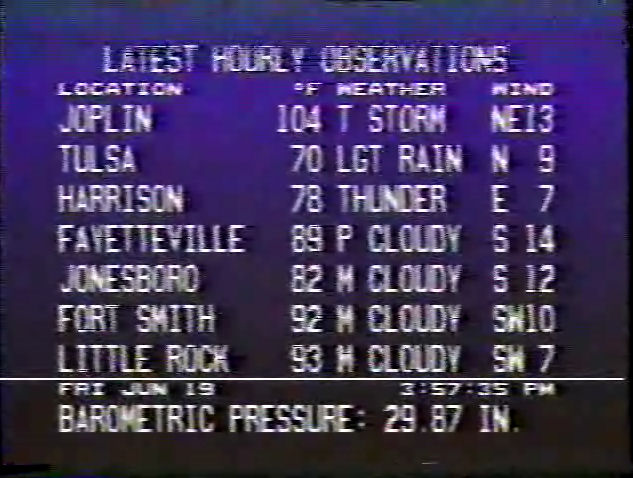Against SOPA and PIPA
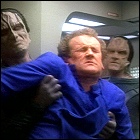 I don’t often get overtly political in my little corner of the web. It’s just not something this site is built for, in many respects. But this is one of those occasions where I think it’s necessary.
I don’t often get overtly political in my little corner of the web. It’s just not something this site is built for, in many respects. But this is one of those occasions where I think it’s necessary.
When Congress resumes soon, two pieces of legislation waiting on the backburner are the Stop Online Piracy Act and the Protect Intellectual Property Act. I’m writing this today to convince you that these two bills are badly written, deliberately vague, and dangerous pieces of legislation.
The fact that I’ve been reviewing, for many years, brand new episodes of Doctor Who and other British shows before they reach American shores (if they even reach them at all) is probably a dead giveaway that I do a little bit of downloading. I’ll cop to that. No surprise there. In the past two years I’ve been liquidating my entire DVD and CD collections, both to raise money and to save space. It’s been standard practice for me to rip those discs prior to sale, which falls into the same admittedly grey area as buying a record (remember those?), running a copy off to tape, and then selling the record again. The studios and labels make their money, because I bought the stuff in the first place, and I don’t go handing their material around to one and all in digital form.
And before you act appalled and disappointed, keep in mind that you’ve downloaded stuff too. Yesterday on BitTorrent. A decade ago on Napster, before the first hammer fell in the digital-age copyright fight. So you can just cut it out with the shocked look of righteous indignation. A very useful tool has been making headlines of late, a torrent-tracking website called YouHaveDownloaded.com, which allows one to punch in an IP address and see exactly what torrents have been downloaded. This site has even shown us that someone on the offices of the House Of Representatives has been downloading stuff like pirate copies of Windows 7, and that someone at the Recording Industry Association of America (one of the biggest corporate backers of these bills) has been downloading entire seasons of Dexter. Stay classy, RIAA, you’re already in the twilight of your usefulness to either artists or labels, what with the whole failing-to-keep-pace-with-technology-and-constantly-lobbying-for-the-world-to-revert-to-1994-settings and all. You’ve held them back while trying to hold the rest of the world back, and you’ve failed, to the detriment of those you’ve pledged to represent.
By the way, when I look up my last several dynamic IP addresses with YouHaveDownloaded… they show nothing.
These laws are incredibly (and, in all likelihood, deliberately) vague as to their precise aims and the means by which those aims may be reached. The Constitution has provisions against unlawful seach and seizure, while SOPA and PIPA would have local and regional internet service providers ignore those laws, and counterless laws against illegal wiretapping, just to check up on everybody and make sure they’re not being naughty. Most ISPs and search engines are actively lobying against SOPA and PIPA. They won’t protect jobs or create jobs. They give the Attorney General of the United States the power to sign orders to knock entire sites, or uncooperative internet providers, off the backbone of the ‘net, without creating adequate procedures for justifying such decisions. Censoring the internet worked so well in Egypt, Tunisia and Yemen. It may yet backfire in China. Do we want to be on that list? (And make no mistake, as relatively tame as the “Occupy [insert placename here]” protests have been, they should serve as a warning shot to our own government that the Arab Spring may simply be the tip of an iceberg whose dimensions encompass something far larger than just the Arab nations. In other words: it can happen here too.)
SOPA and PIPA just create another intrusion into our lives. The age-old (and, I’ve always thought, damned cowardly) fallback position of “If you’re doing nothing wrong, then you have nothing to fear” doesn’t wash here. (Nor, really, does it ever.) Rest assured that these bills’ vagueness will be exploited and their powers will be abused, probably sooner rather than later. When the aim of legislation is to fight something as vague as “piracy” or “terror,” that legislation in practice becomes a whack-a-mole exercise in trying to nail smoke to the wall. All it really does is leave a lot of holes in the wall – assuming the mallet can even be constructed.
Another part of internet life that stands to be clamped down on, unjustly, is the “mashup culture” that has arisen. Budding singers on Youtube covering their favorite song by an established artist. Fan films. Parodies. Sites filled with incisive critique and analysis, just because they’re heavy on material that discusses properties that are someone else’s copyright. (Oh, wait, that sounds familiar.) Far from simply trading in the works of others, some people engaged in these acts of creativity have launched their own careers – careers whose output result in other people being employed to produce, publicize and distribute said output.
Freedom of expression is in danger, and due process is in danger here. Reasonable alternatives which salvage the piracy-fighting portions of SOPA and PIPA have been floated in Congress, and to be fair they still need work, but such trade bodies as the RIAA and the Motion Picture Association of America have been actively fighting these more level-headed measures in the piracy fight. The conclusion is easy to reach: these organizations don’t want to have to resort to conventional weapons that might leave those caught in the crossfire alive. They just want nukes, and they want them now.
They want to take extreme measures to protect their heavy investments in outmoded methods of content delivery, and to cover their butts for the fact that they have failed to keep up with alternatives to those methods. A few years ago, the media trade organizations treated YouTube as the greatest threat that their livelihoods had ever seen. They tried to create a viable alternative in Hulu, but ultimately they’re finding themselves having to cut deals with Netflix, which did keep up with the technology almost in spite of what the studios were doing. (And it wasn’t so long ago when the MPAA and its member studios were trying their damnedest to stonewall Netflix to keep it from ever launching its paid streaming service… which now accounts for fully one-third of American internet traffic – more than three times the amount of bandwidth used by pirates at last count – and puts money in the studios’ pockets.)
SOPA and PIPA, as they are currently written, need to dead-end in Washington, because they’ve become shining examples of doing more harm than good. The studios and media conglomerates, who are throwing gigantic wodges of money at Congresscritters they want to endorse SOPA and PIPA, are fully prepared to eject both baby and bathwater at the same time.
Join me in respectfully, but persistently, urging your Senators and Representatives to kick these bills in the head and bury them quickly – emphasis on “quickly,” because there are so many more big fish to fry in the next ten months. Let’s get this done and over with and move on to the big battles – but let’s get it done, because as a wise man once said, “the first speech censured, the first thought forbidden, the first freedom denied, chains us all irrevocably.”
The fact that SOPA and PIPA could curb our ability to quote or replay the above very concise and cutting scene from a now-20-year-old episode of a television show as inspiration and fodder for discussion should be an eye-opener. The baby – and our freedoms – don’t have to be fired out of the cannon with the bathwater for Hollywood to get the protection that it wants.… Read more

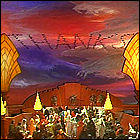 I finally got a response, after over a month of waiting, on a job I’d hoped to get at the only TV station that’s still maintaining any kind of credible presence south of the Bobby Hopper tunnel. And the answer was no. Ah well. To be honest, with the lengthy wait, I’d given up and started carpet-bombing the whole city with my resume and applications anyway.
I finally got a response, after over a month of waiting, on a job I’d hoped to get at the only TV station that’s still maintaining any kind of credible presence south of the Bobby Hopper tunnel. And the answer was no. Ah well. To be honest, with the lengthy wait, I’d given up and started carpet-bombing the whole city with my resume and applications anyway.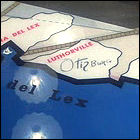 Before anyone asks…
Before anyone asks… My first computer was an
My first computer was an 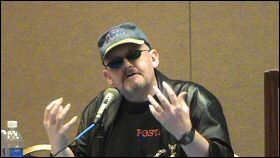 The Game Doctor is out.
The Game Doctor is out. With the whole credit downgrade debt doom business in the news lately, I’ve repeatedly seen the following phrase in print, on TV (in on-screen graphics and closed captioning) and on the web:
With the whole credit downgrade debt doom business in the news lately, I’ve repeatedly seen the following phrase in print, on TV (in on-screen graphics and closed captioning) and on the web: You might just have noticed that I’ve been using ye old blawg the past few days. I have my reasons for this. I’m not going to claim that any of them are terribly valid, but follow along in the little book here and turn the page when you hear the funky sound effect. …
You might just have noticed that I’ve been using ye old blawg the past few days. I have my reasons for this. I’m not going to claim that any of them are terribly valid, but follow along in the little book here and turn the page when you hear the funky sound effect. … 